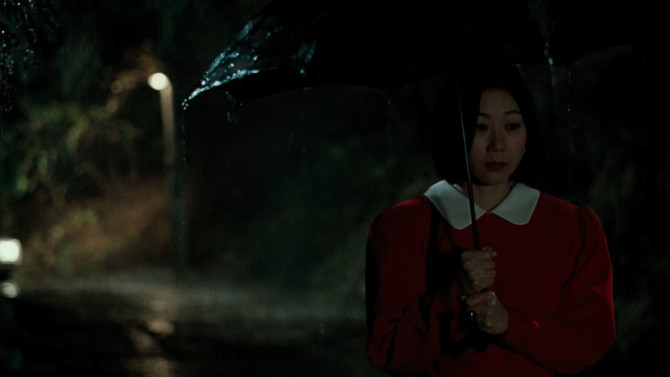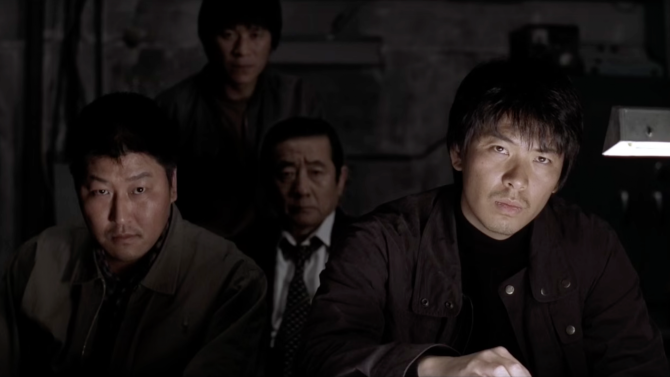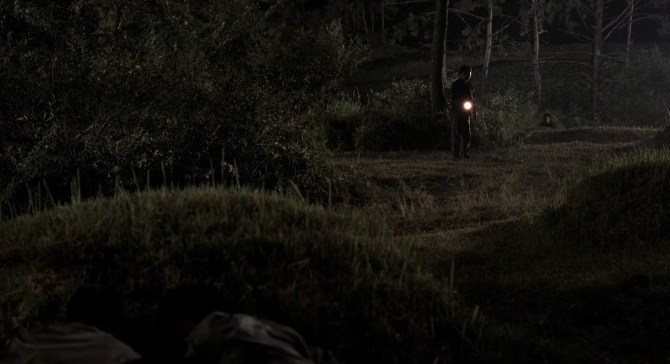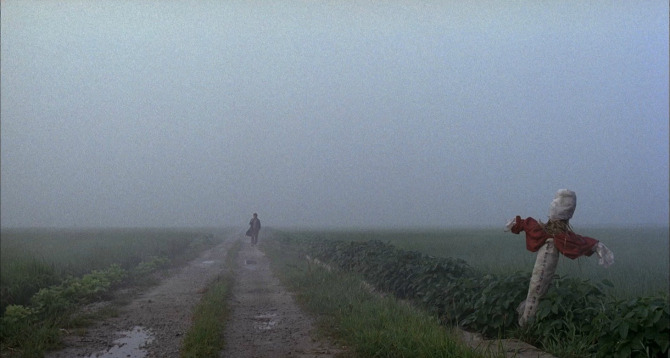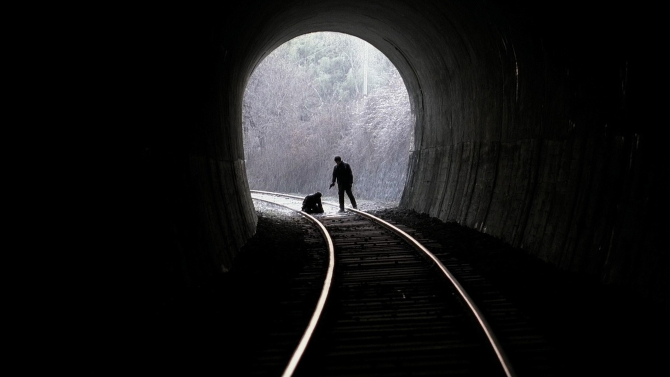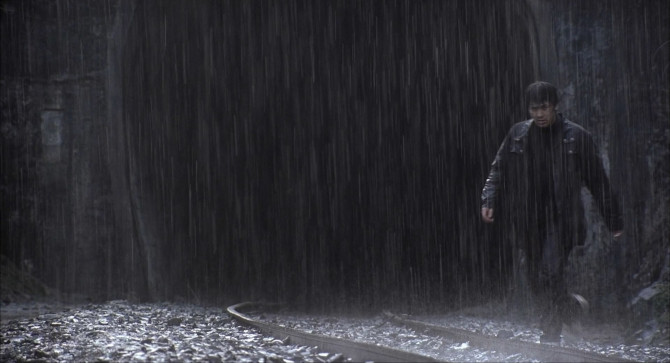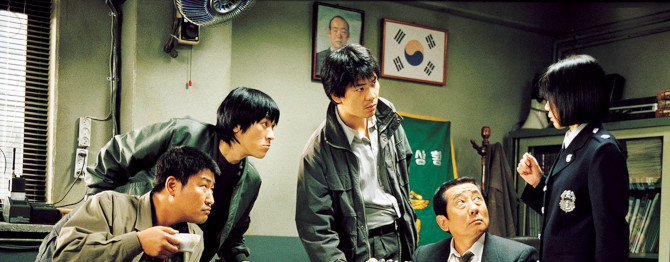Only Bong Joon Ho’s second movie, 2003’s Memories of Murder already shows the masterful brush strokes of a confident young artist, writing a thought provoking, multi-layered script (based upon a series of real life murders as well as Alan Moore’s graphic novel “From Hell”) that is paired with a mesmeric visual onscreen presence.
Set in a rural town in South Korea, this is a location that has been left behind. Usually a peaceful, quiet place (except when the trains pass through), October 1986 has brought with it the dead body of a young woman – both raped and murdered. Riots and protests routinely pop up in this fractured time and setting.
Placed in the hands of inexperienced detective Park Doo-man (Kang-ho Song – Snowpiercer; Parasite), he is an instinctual individual. . . believing that he can read a person by looking into their eyes. Aided by fellow officer ChoYong-koo (Roe-ha Kim), he is more criminal than cop. . . the only difference, he has a badge. He is known for beating suspects to garner confessions.
With bodies quickly piling up (a serial killer is clearly on the loose), they are joined by a detective from Seoul, Seo Tae-yoon (Kim Sang-kyung) – who is accidentally mistaken for the rapist/murderer at first. This is a man who is quite different from these small town men – preferring to look at facts and figures found on paper rather than relying on intuition and violence.
Delving into the illusive depths of the case, these three men question a number of people, including a mentally handicapped teen, Baek-Gwang-ho (No-shik Park), a miner (Woon-seob Shin), and an office worker in a factory, Park Hyeon-gyu (Park Hae-il). Yet, the killer is a challenging opponent, as he never leaves any evidence, at least, not on the surface. Eventually, they realize that the murders do have several similarities; for example, they always take place on rainy nights with women who wear red, and that the killer has soft but strong hands. . . a further discovery reveals that the same unpopular song plays on the local radio station each time a killing occurs.
An intricately plotted, multi-layered narrative, Bong introduces intriguing themes revolving around urban versus rural, as well as male versus female, with mirrored character studies woven in between. Introducing the very rudimentary, old-fashioned investigative methods used in this spacious locale, a process that relies on violence and chance to ‘solve’ the case. . . with the arrival of the Seoul detective (note that he is immediately believed to be the murderer. . . he will also look eerily like one of the prime suspects), he influences the case with more scientific, logic based facts – a staple of the big city. Despite his young age, he has more experience due to the location he has come from (note the conversations about the FBI in America and its methods). Yet, spending time in this new location, surrounded by people with different methods, somehow makes him slowly devolve. . . falling into these easier processes utilized by his fellow detectives.
A location that oozes masculinity – its phallic skyline covered with metal factory steel, stressed men work these overbearing locations, while a murderer leaves his dark mark on the community. . . the three detectives themselves chock full of male bravado attempting to salvage their masculinity by solving the case. Intriguingly, female characters, like Officer Kwon Kwi-ok (Go Seo-hee), as well as school girls and a young girl at the end of the movie, seem wise in comparison – the Officer always making good observations while being ignored by her male counterparts. It is this flawed, almost tyrannical masculinity, that in many ways impedes their investigation – for they never truly understand the killer, despite their best efforts (these efforts in many ways mirroring the killer’s).
Austere and cold, the colours Bong chooses onscreen never bring this location to feminine life. . . its dark, stone and metallic background as cold and clinical as a morgue. Take a step out into the countryside and you’ll see mesmerizing rice fields and the dark inhospitable forests, places that, despite their natural beauty, hide within them spots for the murderer to stalk his prey. A final note. . . Bong is so intricate with his camera placement – look for long takes, intriguing perspectives (mixed with lighting – some of which are naturally lit with flashlights), fourth wall breaking camera stares, and so much more for lovers of visual film making.
Intertwined with an almost cosmic dark humour, Memories of Murder shows Bong Joon Ho already working his magic that was more recently witnessed with Oscar Best Picture winner Parasite. Filled with haunting drama, edge of your seat suspense (a woman walking the rice fields towards a factory at night is one of the best examples of suspense you’ll ever see), touches of comedy, a perplexing mystery, even his planned imperfections are perfect, while the closing scene will reintroduce the idea of memory in multiple ways – nostalgia or the haunting kind, depending on your perspective. So, reflect on this entrancing motion picture, for it is no ordinary film.
This film is in Korean with English subtitles

